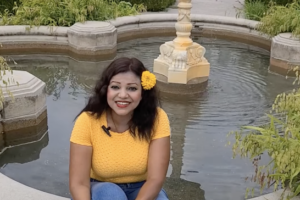When the international manhunt for Abu Bakr al-Baghdadi, the leader of the Islamic State, zoomed in on a village in northwestern Syria, the United States turned to its local allies to help track the world’s most-wanted terrorist.
The US allies, a Kurdish-led force that had partnered with the United States to fight ISIS, sent spies to watch his isolated villa. To confirm it was him, they stole a pair of al-Baghdadi’s underwear — long, white boxers — and obtained a blood sample, both for DNA testing, the force’s commander, Mazlum Abdi, said in a phone interview Monday.
US officials would not discuss the specific intelligence provided by the Kurds, but said that their role in finding al-Baghdadi was essential — more so than all other countries combined, as one put it — contradicting President Donald Trump’s assertion over the weekend that the United States “got very little help.”
Yet even as the Syrian Kurdish fighters were risking their lives in the hunt that led to al-Baghdadi’s death this weekend, Trump abruptly shattered a five-year US partnership with them.
He decided to withdraw US troops from northern Syria, leaving the Kurds suddenly vulnerable to an invasion by Turkey and feeling stung by an American betrayal, and throwing the al-Baghdadi operation into turmoil as the Kurds suspended their security cooperation with the United States to rush off and defend their land.
“We thought that America would keep its promises,” said Abdi, commander of the Kurdish-led Syrian Democratic Forces. “But in the end there was weakness — and disappointment.”
The United States joined forces with Abdi’s group five years ago, when it was looking for skilled Syrian fighters who could effectively serve as ground troops for a US air campaign against the Islamic State. As the alliance matured, the United States armed and trained Kurdish-led fighters and pressed them to shift their priorities to serve US interests.
The United States pushed them to take the fight against ISIS to areas outside their traditional homeland, costing them many lives. It also discouraged them from negotiating a deal with the Syrian government, telling them that sticking with the United States would win them a stake in the country’s future.
“We said being associated with the US coalition would put you in a position where you would be represented,” Gen Joseph L Votel, former head of the military’s Special Operations and Central commands, said in a telephone interview. “You’d be on the winning team.”
In an effort to placate Turkey, the United States convinced the Kurds to destroy their defenses, softening them up for a Turkish attack. It also sought their help in the United States’ regional struggle with Iran, a cause they had little stake in.
For the Kurdish-led forces, the sting was not that US troops were withdrawing from Syria, which they knew would happen eventually. It was that after five years of their fighting and dying alongside US troops in the battle against ISIS, Trump pulled the plug so suddenly that they were ill-prepared for what came next.
“It was a stab in the back,” said Nesrin Abdullah, a spokeswoman for the Kurdish women’s militia. “The Americans kept saying they would not allow the Turks to enter, but in the end that’s what happened.”
Part of the problem was that US officials sent conflicting messages about how long the United States would stay in Syria and what it was doing there.
Obama administration officials told their Kurdish allies that the partnership would last through the defeat of ISIS, but that the United States would help them play a role in Syria’s future. That message grew even more muddled over the last year, as Trump vowed to withdraw US troops while other officials in his administration said they would stay until Iran had left the country and there was a political solution in Damascus.
While there may not have been explicit promises, to the Kurds these messages pointed to a continued US presence. In fact, even during the weeks before the withdrawal, US diplomats were advising them on Programmes to improve governance and security — topics that did not suggest an imminent rush for the exit.
The swift dissolution of a powerful partnership, reconstructed here through more than a dozen interviews with United States and Kurdish officials, pained not only Syria’s Kurds but also Americans who worked with them to defeat the Islamic State.
If the battles served an American agenda, it was the Kurds who died for it. Fewer than a dozen Americans were killed during the anti-ISIS campaign in Syria, compared with 11,000 from the Kurdish-led forces.
“We outsourced the dying to them,” said a US official who worked in Syria, who was not authorised to speak publicly on the issue. “And in the end, we asked them to surrender everything they worked for: the security of their heartland, their political project, and their people. We’re ensuring that those 11,000 died for nothing.”
An Unlikely Partnership
The partnership began by chance during a crisis.
By October 2014, three years into Syria’s civil war, the Islamic State had seized territory the size of Britain straddling the Syria-Iraq border. When ISIS set its sights on the poor Kurdish town of Kobani, the United States jumped in, working with Kurdish fighters while launching hundreds of airstrikes on ISIS tanks, artillery pieces and armored vehicles.
Polat Can, a senior adviser to the Kurdish militia, said that a joint operations room in northern Iraq was so crowded that Kurdish and US soldiers slept together on the floor. He recalled the Americans’ joy whenever they blew up an ISIS target.
The partnership worked. The militants sustained their first major defeat in Syria, and the United States found a reliable Syrian partner.
When the conflict in Syria began in 2011 with an uprising against President Bashar Assad, the United States tried to back Arab rebels to fight the government, and later to battle the Islamic State. But those efforts failed because of rebel corruption and infighting, defections to extremist groups or lack of American follow-up.
Kobani introduced the United States to a new force, a Kurdish militia called the People’s Protection Units, which US officials found to be skilled, disciplined and loyal to a communist-inspired ideology that allowed no sympathy for Islamists.
It had come together early in the war to protect Syria’s Kurds, a long-marginalised ethnic minority concentrated in the country’s northeast. But the militia’s roots in the Kurdistan Workers’ Party, a guerrilla movement that has been fighting an insurgency in Turkey for decades, complicated the new partnership.
Turkey and the United States consider the group a terrorist organisation, but in 2014, US officials were so desperate for allies against ISIS that they overlooked those ties. Turkey did not, and its animosity to the Kurdish fighters in Syria would grow over the coming years.
Turkey took particular offense at Abdi, the Syrian commander who became the Americans’ main interlocutor. Abdi, also known as Mazlum Kobani, had joined the Kurdish guerrillas during university and become a protégé of the movement’s founder, Abdullah Ocalan. Officials in Turkey and Iraq say Abdi worked for the group for decades and led a special operations unit that attacked Turkish soldiers.
But the Americans found him to be a strategic thinker who kept his promises. A soft-spoken man in his late 40s, Abdi had short brown hair, a clean-shaven face and a preference for military fatigues and black sneakers. The partnership grew, with the United States providing intelligence, air cover and logistical help as Abdi’s forces routed ISIS from towns across northern Syria.
“The American military saw what could be done with local, indigenous fighters who had a will to fight hard, take instruction and were trusted not to shoot US forces in the back,” said Nicholas A Heras, a fellow at the Center for a New American Security who has advised Kurdish forces in Syria.
As Abdi’s forces advanced, they allied with Christian, Arab and other militias, rebranding themselves in 2015 as the Syrian Democratic Forces, or SDF.
After the group’s victories in northern Syria, the United States wanted it to pivot south, toward the predominantly Arab provinces of Raqqa and Deir al-Zour, where the Islamic State was strongest. Some Kurds resisted, asking why their youth should die for Arab lands and questioning the US commitment to their people.
But their leader decided that leaving ISIS anywhere in Syria would be a threat, and top US officials reassured the Kurds that the United States would secure them a place in the country’s future.
“There were people saying, ‘Why are you going to Raqqa?” said Nasir Haj Mansour, a Syrian Kurdish researcher who is close to the SDF leadership. “I told them: ‘If we don’t fight ISIS there, it will come fight us here. Now we have an opportunity with the international coalition to get rid of this organisation for the good of everyone.’”
US military assistance increased. American advisers taught Syrian fighters infantry tactics, first aid, bomb defusal and reconnaissance skills for US airstrikes.
In October 2017, backed by US jets and armed with machine guns and rocket-propelled grenades, they seized Raqqa, the ISIS capital, where they embarrassed their American partners and angered Turkey by unfurling a banner of Ocalan, the Kurdistan Workers’ Party founder, in a downtown square.
In the areas it liberated, the SDF established local councils that followed its philosophy of community rule and gender equality.
US officials never endorsed the Kurds’ political project but made repeated if vague promises to help secure their political future.
“Truthfully, we didn’t have a solid plan for how it would end,” Gen Tony Thomas, a former head of the military’s Special Operations Command, said on CBS’ “Face the Nation” last week. “But they believed that they would be part of the fabric of the future of Syria.”
Mixed Signals
Last December, Trump suddenly announced on Twitter that he was withdrawing the roughly 2,000 US troops in Syria because ISIS had been defeated, calling that “my only reason for being there.”
The decision baffled the Kurdish-led forces, who were still locked in fierce battles with the Islamic State and would not rout the group from its last patch of territory for another three months.
The withdrawal decision angered Trump’s Republican allies in Congress and even members of his administration.
Defence Secretary Jim Mattis resigned, as did Brett McGurk, the presidential envoy for the fight against the Islamic State, who both considered it a mistake. Since Trump took office, top administration officials had said the US presence in Syria was not just to ensure the end of the militants but also to press for political change in Damascus and push out Iran.
The Kurds wanted continued US help against ISIS and sought political change in Damascus, but resisted joining the struggle with Iran, especially given the shaky US commitment, Kurdish officials said.
Trump compromised, ordering the military to reduce the American presence to 1,000 troops, while US officials hinted at a longer-term presence.
Throughout the war, the Kurds had never joined the rebels against Assad’s government, and kept lines open in case they needed to reconcile. But Trump administration officials told them American partners should not talk to American enemies, Abdi has said, so they froze talks with the Syrian government.
When Turkey threatened to invade northern Syria to sweep Kurdish forces off its border, the United States carried out a plan that required the Kurds to blow up tunnels, destroy trenches and dig up ammunition caches they had put in place to defend against a possible Turkish attack.
Many Kurds feared plan would leave them vulnerable, but Abdi carried it out, convinced that the United States would ensure his people’s safety.
The partnership appeared to be solid: The United States was seeking Kurdish help for the most sensitive of missions, the hunt for al-Baghdadi.
After US officials determined that he could be in Idlib province, in northeastern Syria, the Kurdish-led force sent spies who watched the house, determined how many rooms it had and who was in it, and found a tunnel underneath, according to Abdi and a Kurdish intelligence officer. During the raid, al-Baghdadi fled into the tunnel with three children and blew himself up, killing them all.
The Kurdish spies also stole the terrorist leader’s boxer shorts and obtained a blood sample through what Abdi called “intelligence work.”
DNA testing confirmed that al-Baghdadi was inside, and Abdi’s spies kept watch while the United States planned the raid to get him.
‘You Tricked Us!’
They were still waiting on Oct 6, when Trump announced after a phone call with Erdogan that he was removing US troops from the path of a Turkish attack on the United States’ Syrian partners.
The ensuing fighting killed more than 200 people and delayed the raid on al-Baghdadi’s villa as Abdi’s forces shifted their focus to fighting the Turks.
Some US officials watched in dread as Turkey attacked the very zone where the Kurds had removed their defenses.
“You tricked us!” Abdi, the Kurdish commander, yelled at US officials.
Kurdish officials rushed to the Syrian government for help, but instead of bargaining from a position of strength, they now began talks under fire.
The feeling of betrayal consumed not just the Kurds but much of northeastern Syria, where residents who had felt protected by the United States feared Turkey and Assad’s troops.
“The Americans betrayed the Kurds,” Farhan Mohammed, a Kurdish ice merchant, shouted as an American convoy passed his shop on its way out of Syria last week. His friends yelled insults and flashed the thumbs-down.
“Our whole future is determined by Trump’s tweets,” he said.
Trump has stood by his decision.
“We never agreed to protect the Kurds for the rest of their lives,” he said this month adding that a small contingent of troops would remain in Syria’s east at the request of Israel and Jordan and to “protect the oil.”
Other than that, he said, there was “no reason” to remain.
“Perhaps it’s time for the Kurds to start heading to the oil region,” he said in a tweet on Thursday, seeming to suggest another mission for the Kurds.
But the Kurds are busy resisting further Turkish advances that they fear could amount to the ethnic cleansing of Kurds from their homeland.
Kurdish leaders say they hoped five years of cooperation could have ended with more respect for their sacrifices.
“All of a sudden you give it up and give it to the regime and Russia and Iran,” said Can, the SDF adviser. “After that, who is going to trust the Americans and help them? No one.”
Despite their anger, the Kurds have not cut ties with the United States.
Abdi, their leader, has spoken twice by phone with Trump and there is talk of his visiting Washington. And the Kurds have not rejected Trump’s suggestion that some Kurdish fighters remain in eastern Syria to protect the oil facilities.
But the trust in the White House is gone.
“The situation has changed,” said Ilman Ehmed, a top Kurdish official who was in Washington last week to speak with other US officials about continuing cooperation. “But we still trust the fact that we have many friends among the American people. In the House of Representatives. The Senate. And military leaders. I trust their support.”






















